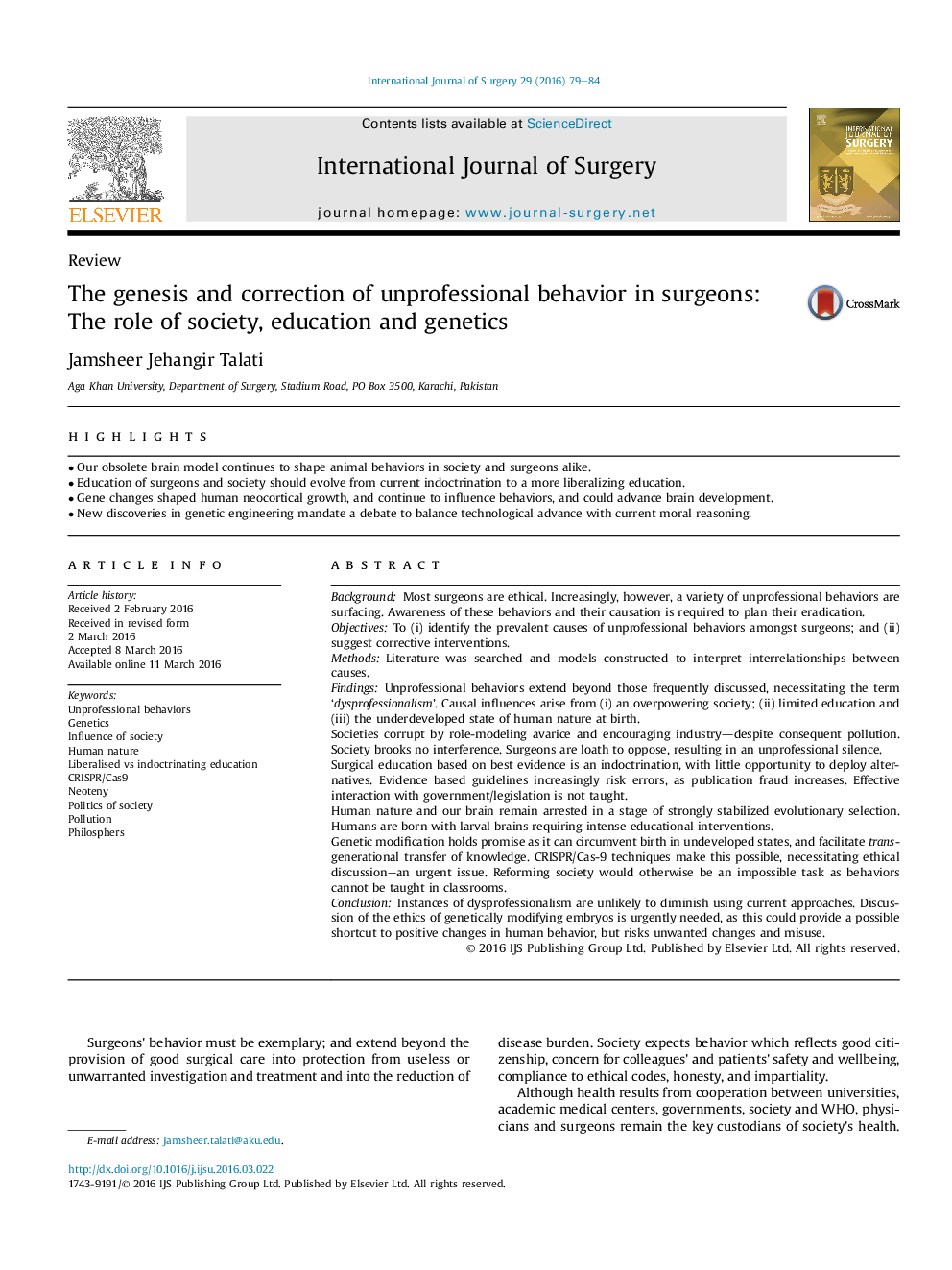| Article ID | Journal | Published Year | Pages | File Type |
|---|---|---|---|---|
| 4285415 | International Journal of Surgery | 2016 | 6 Pages |
•Our obsolete brain model continues to shape animal behaviors in society and surgeons alike.•Education of surgeons and society should evolve from current indoctrination to a more liberalizing education.•Gene changes shaped human neocortical growth, and continue to influence behaviors, and could advance brain development.•New discoveries in genetic engineering mandate a debate to balance technological advance with current moral reasoning.
BackgroundMost surgeons are ethical. Increasingly, however, a variety of unprofessional behaviors are surfacing. Awareness of these behaviors and their causation is required to plan their eradication.ObjectivesTo (i) identify the prevalent causes of unprofessional behaviors amongst surgeons; and (ii) suggest corrective interventions.MethodsLiterature was searched and models constructed to interpret interrelationships between causes.FindingsUnprofessional behaviors extend beyond those frequently discussed, necessitating the term ‘dysprofessionalism’. Causal influences arise from (i) an overpowering society; (ii) limited education and (iii) the underdeveloped state of human nature at birth.Societies corrupt by role-modeling avarice and encouraging industry—despite consequent pollution. Society brooks no interference. Surgeons are loath to oppose, resulting in an unprofessional silence.Surgical education based on best evidence is an indoctrination, with little opportunity to deploy alternatives. Evidence based guidelines increasingly risk errors, as publication fraud increases. Effective interaction with government/legislation is not taught.Human nature and our brain remain arrested in a stage of strongly stabilized evolutionary selection. Humans are born with larval brains requiring intense educational interventions.Genetic modification holds promise as it can circumvent birth in undeveloped states, and facilitate trans-generational transfer of knowledge. CRISPR/Cas-9 techniques make this possible, necessitating ethical discussion–an urgent issue. Reforming society would otherwise be an impossible task as behaviors cannot be taught in classrooms.ConclusionInstances of dysprofessionalism are unlikely to diminish using current approaches. Discussion of the ethics of genetically modifying embryos is urgently needed, as this could provide a possible shortcut to positive changes in human behavior, but risks unwanted changes and misuse.
